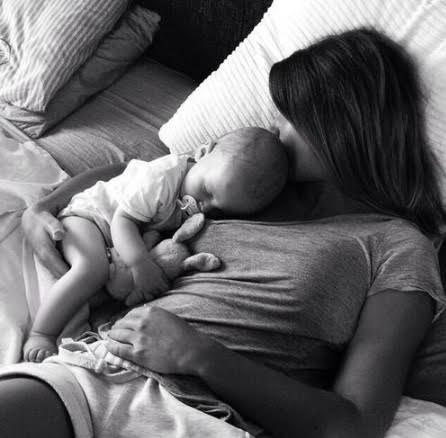The Importance of Affection in Children's Brain Development

The first three years of your baby’s life are crucial for their brain development, since hundreds of important systems develop during this period, especially those involved with managing emotional responses to stress.
As Sue Gerhardt, a British psychotherapist dedicated to research on babies, explains, it is very important that babies do not feel too much stress, as this can hinder the development of neural connections that the brain is forming.
Infants are very easily stressed, says Sue Gerhardt, who is also the author of the book Why Love Matters. The psychotherapist explained in an interview with scientific author Edward Punset that stress produces cortisol, and that too much of this hormone can hinder the development of neural connections in babies’ brains.
In fact, the different biochemical circuits in the superior regions of the brain begin to develop during the three first years in a child’s life, meaning that they are not born with these but rather that they either develop well or not, depending on the experiences, care, supervision and affection that babies receive from significant adults.
This is why it is so important to make eye contact with your baby as well as smile at them, play with them, hold them in your arms, touch them and massage them. All of these actions produce feelings of pleasure and security, and help a lot to avoid stress, manage cortisol levels and overall allow for the healthy development of the brain.

Love Is an Ally in Brain Development
Attachment parenting your child helps them to develop mechanisms to regulate their own cortisol. When your baby is born they are not able to do this on their own; and they depend on you and the other adults around them to do it.
Gerhardt claims that for an infant, being far away from their caregiver for a long time can be very stressful because they depend on them for survival; this is why being left alone in their crib crying can be a truly difficult experience.
The expert names other types of situations that can be very stressful for your baby, which include an excess of stimuli such as sounds, seeing a lot of new faces at a family event, and the frustration and the fear of falling when they try to learn to crawl or walk.
These are situations that can cause a lot of stress for your baby and if you think about it, they can stress you out too, or any adult. The difference is that we have developed mechanisms that help us deal with this high levels of cortisol.
Naturally, when any adult person feels overwhelmed they’ll go get a cup of coffee or tea, call a friend to vent, go out for a walk or a jog, or read a book… but the only thing your baby has is you, and that is why they cry when you leave.

Your Baby Needs to Feel Safe in order to Grow Properly
The safety that an infant feels in the arms of their mother is just as important as sleep, food or protection from the cold or from any threat. Not surprisingly, attachment theory, originally proposed by the English infant psychiatrist, John Bowlby, demonstrated that from a child’s birth until they become independent, they need the body, warmth, attention, care and constant caresses from their mom or preferably a very close caregiver with a strong bond, who knows how to interpret and meet their needs.
All of the love and care that you provide to your child contributes to their brain developing wonderful connections that will help them do their best to solve and face any situation that they will have in life.
We’re not just being poetic or corny, in fact in recent years neuroscience has already provided us with information about the importance of the relationship of affection with the development of the bond between newborns and their mother, since brain development depends on the infant’s external interactions, especially in affectionate relationships with their caregivers.
In fact, the love that a mother shows to their child and attachment parenting during the first years of childhood (up to five years of age) encourages the development of the little one’s brain, according to the findings of a study conducted by scientists at the School of Medicine of Washington University in St. Louis.
All cited sources were thoroughly reviewed by our team to ensure their quality, reliability, currency, and validity. The bibliography of this article was considered reliable and of academic or scientific accuracy.
- Blanco Paredes, H. (2017). Neuropsicología Infantil. Boletín Científico de La Escuela Superior de Atotonilco de Tula. https://repository.uaeh.edu.mx/revistas/index.php/atotonilco/article/view/2409
- Ostrosky, F. (2011). Desarrollo del sistema nervioso. Neurociencias.
- Rosselli, M., Matute, E., & Ardila, A. (2010). Neuropsicología del desarrollo infantil. Editorial El Manual Moderno.
- Rosselli, M. (2002). Maduración cerebral y desarrollo cognoscitivo. Revista Latinoamericana de Ciencias Sociales, Niñez y Juventud
This text is provided for informational purposes only and does not replace consultation with a professional. If in doubt, consult your specialist.
